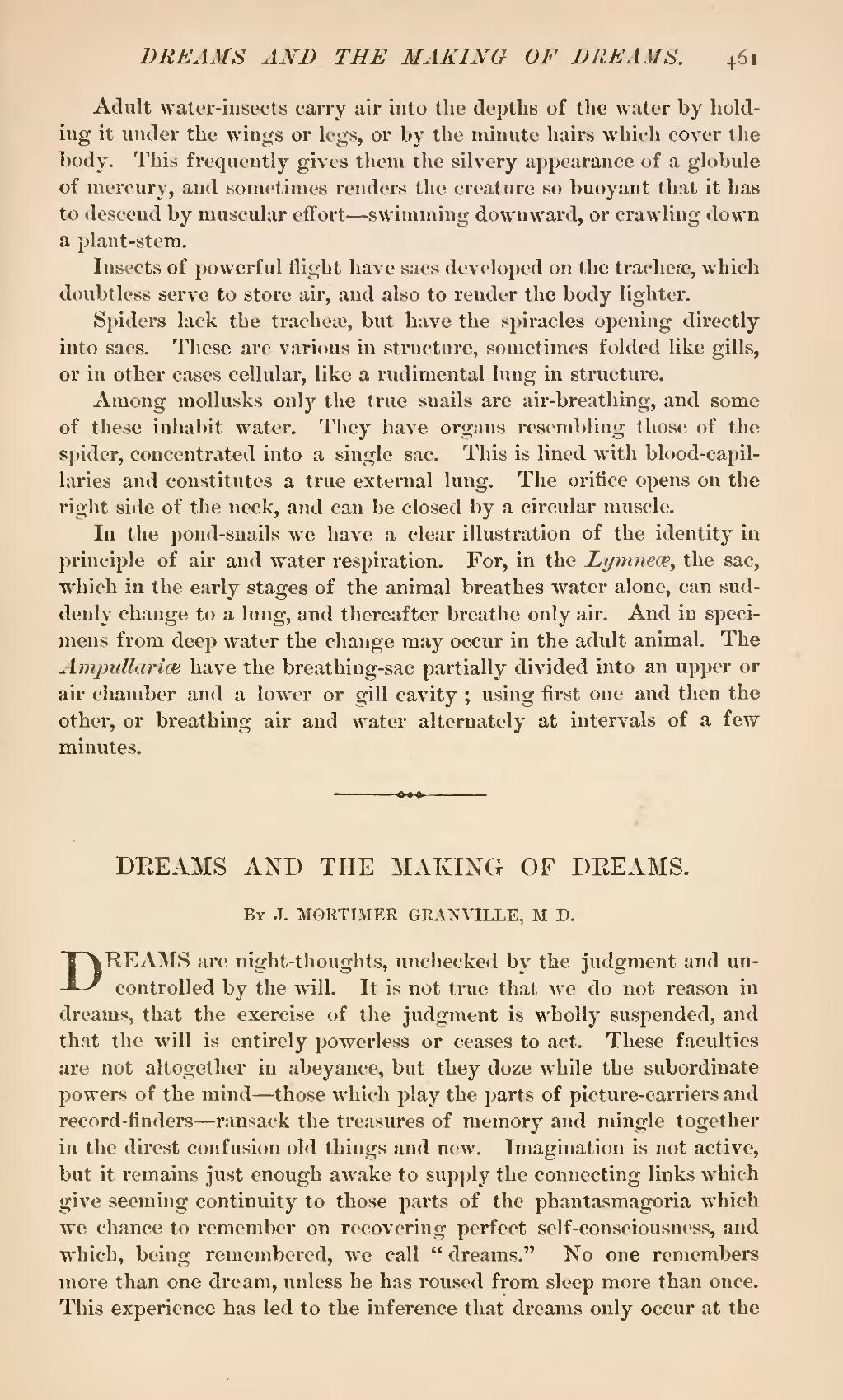Adult water-insects carry air into the depths of the water by holding it under the wings or legs, or by the minute hairs which cover the body. This frequently gives them the silvery appearance of a globule of mercury, and sometimes renders the creature so buoyant that it has to descend by muscular effort—swimming downward, or crawling down a plant-stem.
Insects of powerful flight have sacs developed on the trachea?, which doubtless serve to store air, and also to render the body lighter.
Spiders lack the tracheae, but have the spiracles opening directly into sacs. These are various in structure, sometimes folded like gills, or in other cases cellular, like a rudimental lung in structure.
Among mollusks only the true snails are air-breathing, and some of these inhabit water. They have organs resembling those of the spider, concentrated into a single sac. This is lined with blood-capillaries and constitutes a true external lung. The orifice opens on the right side of the neck, and can be closed by a circular muscle.
In the pond-snails we have a clear illustration of the identity in principle of air and water respiration. For, in the Lymneæ, the sac, which in the early stages of the animal breathes water alone, can suddenly change to a lung, and thereafter breathe only air. And in specimens from deep water the change may occur in the adult animal. The Ampullariæ have the breathing-sac partially divided into an upper or air chamber and a lower or gill cavity; using first one and then the other, or breathing air and water alternately at intervals of a few minutes.
| DREAMS AND THE MAKING OF DREAMS. |
By J. MORTIMER GRANVILLE, M. D.
DREAMS are night-thoughts, unchecked by the judgment and uncontrolled by the will. It is not true that we do not reason in dreams, that the exercise of the judgment is wholly suspended, and that the will is entirely powerless or ceases to act. These faculties are not altogether in abeyance, but they doze while the subordinate powers of the mind—those which play the parts of picture-carriers and record-finders—ransack the treasures of memory and mingle together in the direst confusion old things and new. Imagination is not active, but it remains just enough awake to supply the connecting links which give seeming continuity to those parts of the phantasmagoria which we chance to remember on recovering perfect self-consciousness, and which, being remembered, we call "dreams." No one remembers more than one dream, unless he has roused from sleep more than once. This experience has led to the inference that dreams only occur at the

